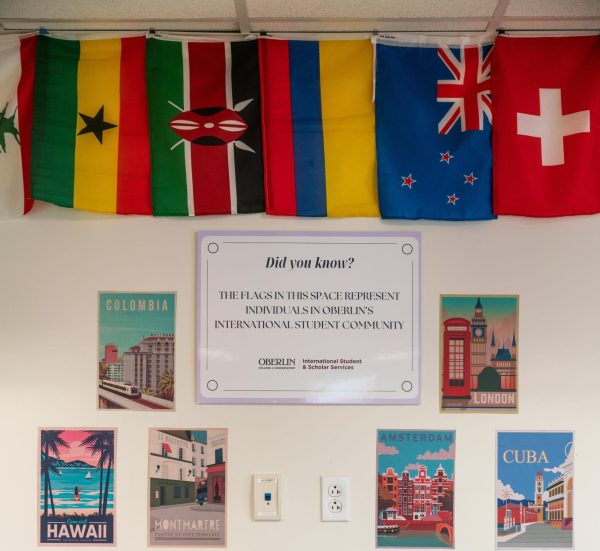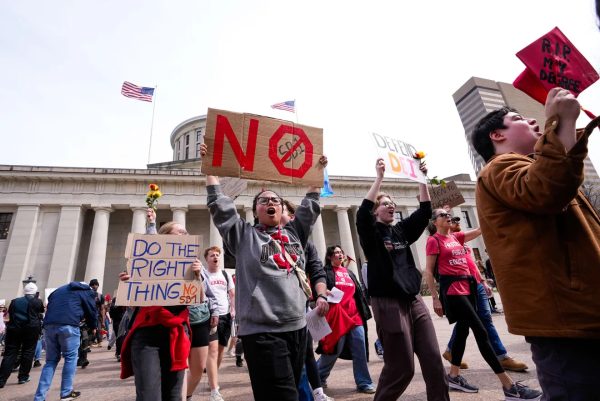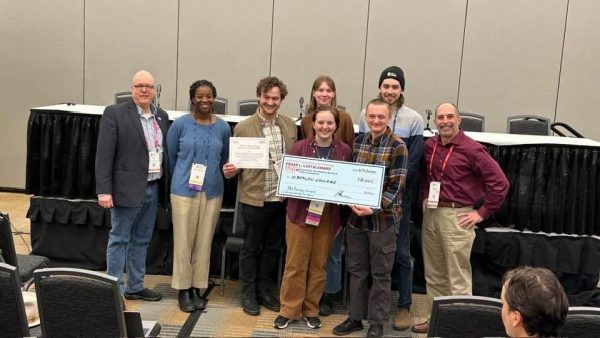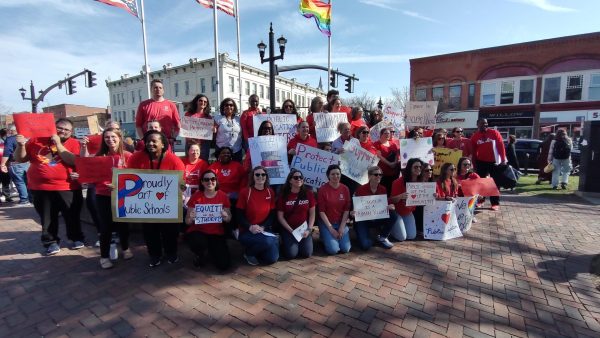Administrators Address Potential Impact of COVID-19
As the newest iteration of coronavirus, known as COVID-19, continues to spread around the world, Oberlin — like other colleges and universities across the country — is preparing to address challenges that the virus may inflict on campus life. Administrators are taking steps to support current and prospective international students impacted by the viral outbreak, as well as to anticipate the potential financial impact of COVID-19 on Oberlin.
According to President Carmen Twillie Ambar, some of the potential financial difficulties could stem from foregone tuition from students who would not be able to come to campus in the fall, should international travel restrictions remain in place until that time.
“Most colleges and universities in the U.S. are facing impacts from what is now being called COVID-19,” President Ambar wrote in an email to the Review. “At Oberlin, students from China represent about 12 percent of our student net revenue. If, for whatever reason, those students suddenly could not attend Oberlin, we could lose a significant portion of our student net revenue, which is about $84 million [total].”
According to notes circulated to the student body by Student Senate on Feb. 22, President Ambar stated during the Feb. 19 General Faculty meeting that COVID-19 has the potential to have a $10 million dollar impact on Oberlin’s bottom line.
When reached for comment, President Ambar could not confirm the amount, but did say that COVID-19 has the potential to impact the institution financially through a variety of different levers, including foregone tuition and room and board.
The first detected case of COVID-19 surfaced in Wuhan, China in December 2019. According to the Centers for Disease Control and Prevention, the infectious disease has since spread to 37 locations internationally.
According to Vice President and Dean of Admissions and Financial Aid Manuel Carballo, Chinese students made up 20 percent of Oberlin’s international applicants this year. As students are not required to let the College know their decision until May 1, it is still too early to say how COVID-19 may affect incoming enrollment and yield numbers.
“A lot can happen between now and at the end of August when students [arrive],” Carballo said. “But, before then, it’s going to be things like: Will the embassies be open students be able to get visas? Will the airlines resume travel?”
Carballo maintains that COVID-19 will not affect admissions decisions for the incoming class — Admissions is currently finalizing regular-decision acceptances, and most of the letters will be mailed out by late March.
“We are also reaching out to current applicants to reassure them that their applications are being reviewed as they have been in the past and that we don’t foresee changes in our decision-making process,” Carballo said.
In looking toward next spring’s recruiting cycle, Admissions is facing interruptions to its overall strategy because of concerns over the worldwide outbreak.
For example, Admissions has fewer opportunities to connect with prospective students in China through in-person events this year, potentially affecting application numbers. The College cancelled a March recruitment trip to China due to travel restrictions.
To mitigate the potential impact of these cancellations, Senior Assistant Director of Admissions Sophie Mettler-Grove — who leads international admissions — already reached out to Chinese schools that send a high number of students to Oberlin. She will host multiple virtual “campus visits” via webinars over the next few weeks.
Admissions’ decision-making process must work within a broader context of national policy designed to minimize the risk of a possible coronavirus outbreak in the United States. President Donald Trump recently issued an executive order on Jan. 31 that bans all foreigners who have been in China for at least two weeks since the outbreak from entering the U.S.
This means that students may have to go to another country that will allow them to stay there for two weeks before they come to Oberlin.
In addition to navigating possible challenges regarding recruiting and retention, the administration is working to support current students impacted by COVID-19.
One of the most urgent concerns for the administration is accommodating students and graduating seniors whose parents are in China. The uncertainty of when the travel ban will be lifted affects whether families will be able to travel to campus for Commencement, or whether students will be able to return home for the summer as planned.
“While our initial messaging/support for students and the wider Oberlin community centered around everyone’s return to campus and the start of the semester, we are now looking forward and beginning the planning process for the concerns like commencement, summer, and fall,” wrote Josh Whitson, assistant dean of students and director of the International Resource Center, in an email to the Review.
According to Whitson, more information will become available to campus stakeholders over the next few weeks as more clarity emerges over the number of students affected by the virus. Vice President and Dean of Students Meredith Raimondo said the College is in the process of putting together larger protocols to support students.
“We’re prepared to provide housing to [impacted] students and certainly could assist with them identifying work opportunities on campus,” Raimondo said of students potentially forced to stay on campus through the summer. “My hope would be that any student who [remains] in Oberlin could have a great summer experience doing something that feels meaningful in terms of their goals.”
Besides COVID-19, international students face other concerns studying in the U.S. Some feel that the Trump administration’s attitude on national immigration and travel policies makes the U.S. a less welcoming place for international students.
Carballo is empathetic toward students affected by any of these concerns.
“I think this is just a reminder [that] there’s a lot of families and a lot of students who are going through some really hard times,” Carballo said. “So my thoughts are with all those families dealing with all these challenges, and the best we can do is to figure out how we can be flexible to make sure that this doesn’t affect them as they’re looking for where they want to be.”





